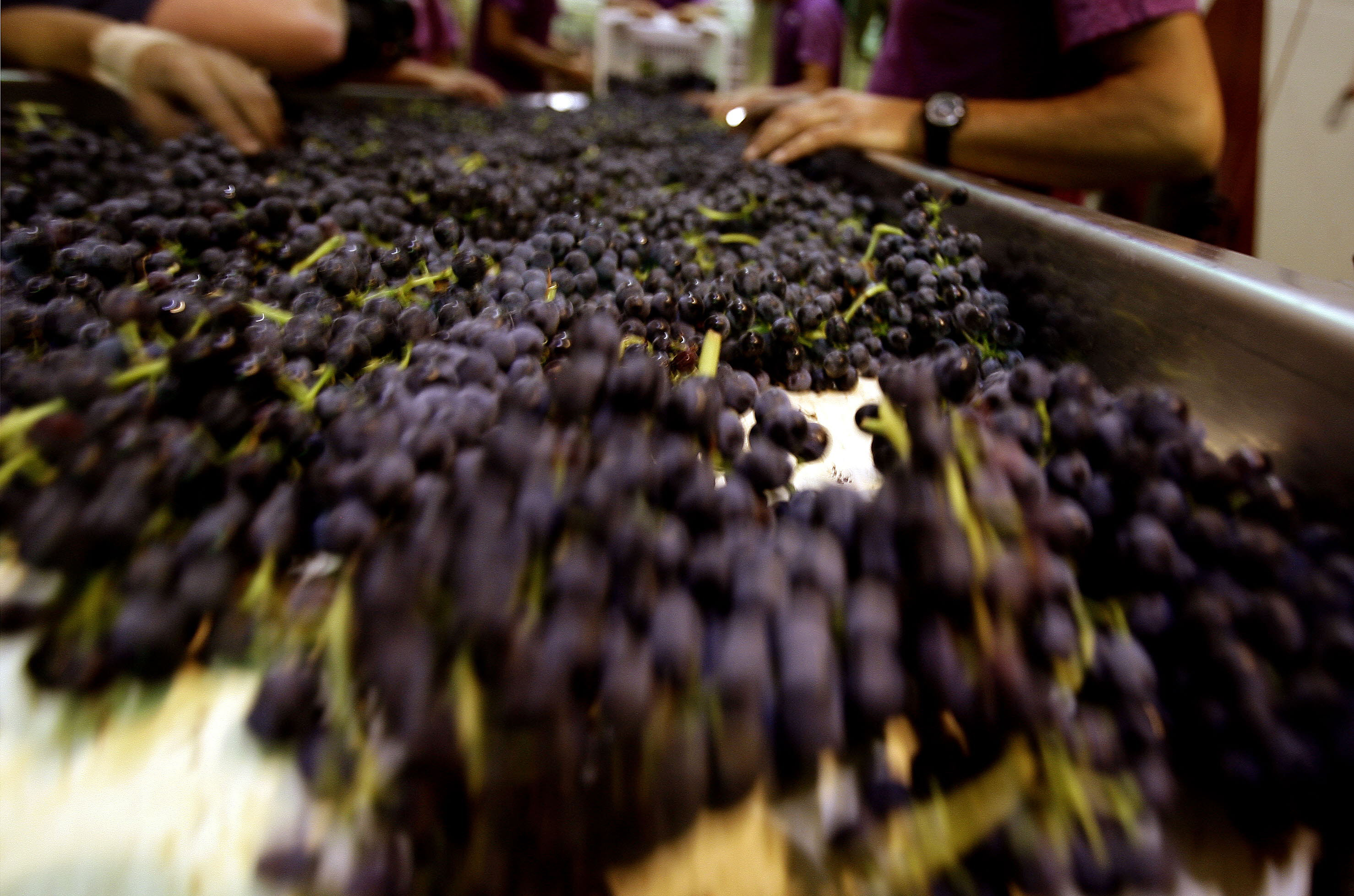Scientists hope to turn ancient grape DNA into wines drunk by King David, Jesus


A free daily email with the biggest news stories of the day – and the best features from TheWeek.com
You are now subscribed
Your newsletter sign-up was successful
Israeli vintners have tapped into their ancient heritage to create wines 1,800 years in the making. Using money from the Jewish National Fund, oenologist Eliyashiv Drori and a group of scientists at Ariel University's research winery have identified 120 grape varieties distinct to Israel, around 20 of which are suitable for making wine, The New York Times reports. Other researchers have used DNA and a three-dimensional scanner to identify around 70 distinct grape varieties from Biblical times; their goal is to pair the ancient seeds with live grapes and, eventually, to genetically engineer and revive the lost varieties.
But enough about history — how does the resulting wine actually taste?
Itay Gleitman, the wine writer for Haaretz, called marawi "this year's most important Israeli wine," for its provenance, if not taste. He said it was "pleasant and easy-to-drink," and "opens slightly in the glass with gentle aromas of apple and peach." And, if expressly cultivated for winemaking, has potential that "piques the imagination."Next up is dabouki, also white, which the well-known Israeli vintner Avi Feldstein plans to debut along with his new winery in a couple of months. Dabouki might be the oldest of the local varieties, a good candidate for what filled the glass of Jesus (who Mr. Drori believes drank white as well as red). [The New York Times]
Grape specimens are identified as "wine grapes" through extensive field research — say, finding grapes in a destroyed Jewish temple next to clay shards labeled "smooth wine" in an ancient Hebraic language, or picking out 10th century B.C. seeds from donkey droppings in a King Solomon-era copper mine. So far, however, the wine yields have remained relatively low — Recanati Winery produced only 2,480 bottles of the 2014 marawi — due in part to the difficulty obtaining the grapes, which are grown on Palestinian farms where workers face potential backlash for collaborating with Israelis or helping to make alcohol, which is typically forbidden in Islam.
The Week
Escape your echo chamber. Get the facts behind the news, plus analysis from multiple perspectives.

Sign up for The Week's Free Newsletters
From our morning news briefing to a weekly Good News Newsletter, get the best of The Week delivered directly to your inbox.
From our morning news briefing to a weekly Good News Newsletter, get the best of The Week delivered directly to your inbox.
But others dislike politicizing the ancient beverage. "These are not Israeli; they are not Palestinian. They belong to the region — this is something beautiful," vintner Ido Lewinsohn said.
A free daily email with the biggest news stories of the day – and the best features from TheWeek.com
Jeva Lange was the executive editor at TheWeek.com. She formerly served as The Week's deputy editor and culture critic. She is also a contributor to Screen Slate, and her writing has appeared in The New York Daily News, The Awl, Vice, and Gothamist, among other publications. Jeva lives in New York City. Follow her on Twitter.
-
 Can Europe regain its digital sovereignty?
Can Europe regain its digital sovereignty?Today’s Big Question EU is trying to reduce reliance on US Big Tech and cloud computing in face of hostile Donald Trump, but lack of comparable alternatives remains a worry
-
 The Mandelson files: Labour Svengali’s parting gift to Starmer
The Mandelson files: Labour Svengali’s parting gift to StarmerThe Explainer Texts and emails about Mandelson’s appointment as US ambassador could fuel biggest political scandal ‘for a generation’
-
 Magazine printables - February 13, 2026
Magazine printables - February 13, 2026Puzzle and Quizzes Magazine printables - February 13, 2026
-
 Blue Origin launches Mars probes in NASA debut
Blue Origin launches Mars probes in NASA debutSpeed Read The New Glenn rocket is carrying small twin spacecraft toward Mars as part of NASA’s Escapade mission
-
 Dinosaurs were thriving before asteroid, study finds
Dinosaurs were thriving before asteroid, study findsSpeed Read The dinosaurs would not have gone extinct if not for the asteroid
-
 SpaceX breaks Starship losing streak in 10th test
SpaceX breaks Starship losing streak in 10th testspeed read The Starship rocket's test flight was largely successful, deploying eight dummy satellites during its hour in space
-
 Rabbits with 'horns' sighted across Colorado
Rabbits with 'horns' sighted across Coloradospeed read These creatures are infected with the 'mostly harmless' Shope papilloma virus
-
 Lithium shows promise in Alzheimer's study
Lithium shows promise in Alzheimer's studySpeed Read Potential new treatments could use small amounts of the common metal
-
 Scientists discover cause of massive sea star die-off
Scientists discover cause of massive sea star die-offSpeed Read A bacteria related to cholera has been found responsible for the deaths of more than 5 billion sea stars
-
 'Thriving' ecosystem found 30,000 feet undersea
'Thriving' ecosystem found 30,000 feet underseaSpeed Read Researchers discovered communities of creatures living in frigid, pitch-black waters under high pressure
-
 New York plans first nuclear plant in 36 years
New York plans first nuclear plant in 36 yearsSpeed Read The plant, to be constructed somewhere in upstate New York, will produce enough energy to power a million homes
